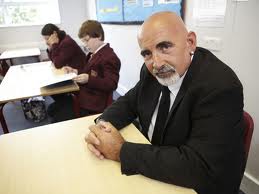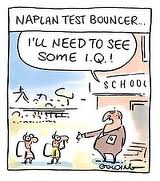I suspect that this news article is intended to belittle a man who has failed his drivers test 107 times. Be that as it may, I prefer to look at it as an inspiring account of a person with incredible resilience and stamina who is determined to overturn an endless cycle of failures:
Many of us know someone who has struggled to pass their driving test. But spare a thought for the hapless learner who has set a record for failure.
The unnamed 28-year-old, from London, has flunked the car theory test 107 times and is still yet to pass.
They have so far spent £3,317 trying to pass the exam, which costs £31 a time. The test includes a 57-minute multiple choice exam, with a pass mark of 43 out of 50, and a hazard perception test with a pass mark of 44 out of 75.
Once you’ve passed both parts of the theory, there’s still the practical to overcome.
One determined 40-year-old logged a record number of practical driving tests – passing on his 37th attempt. The unnamed man, from Stoke-on-Trent, forked out at least £2,294 trying to pass – which could have paid for a reasonable second-hand car.
The practical test costs £62 to take on a weekday or £75 for a test on an evening, weekend or bank holiday.
An AA Driving School spokesman said: ‘This is an unusually high number of test attempts, but it is important to remember that everyone learns at their own pace. Their determination to pass highlights how important learning to drive is to most people.
‘It is a milestone that many people aspire to achieving because of the freedom and independence it brings.’
Click on the link to read 25 Amusing Signs You Might Be a 21st Century Teacher
Click on the link to read 20 Questions Teachers Should Be Asking Themselves
Click on the link to read School Official Allegedly told a Teacher to Train her Breasts to not Make Milk at Work
Click on the link to read 12 Tips for Managing Time in the Classroom
Click on the link to read If Teachers Were Paid More I Wouldn’t Have Become One
Click on the link to read Different Professions, Same Experiences
Click on the link to read Our Pay Isn’t the Problem







